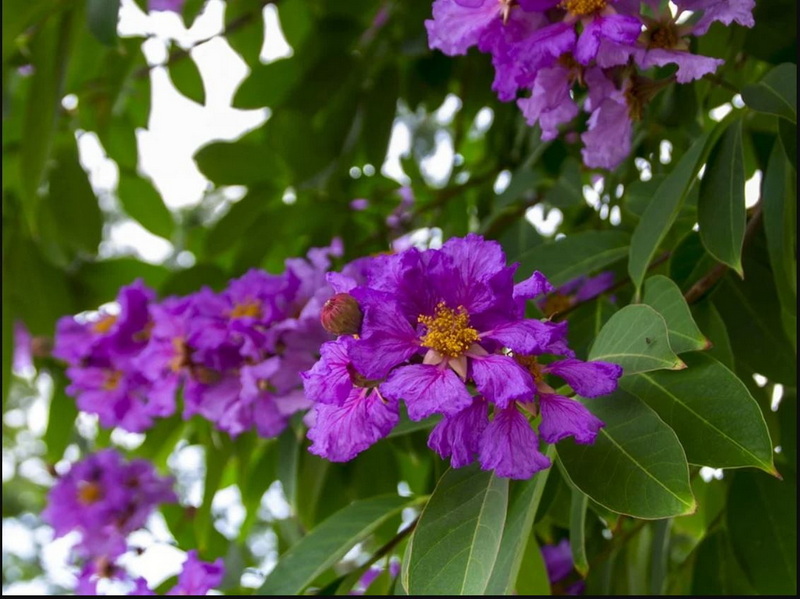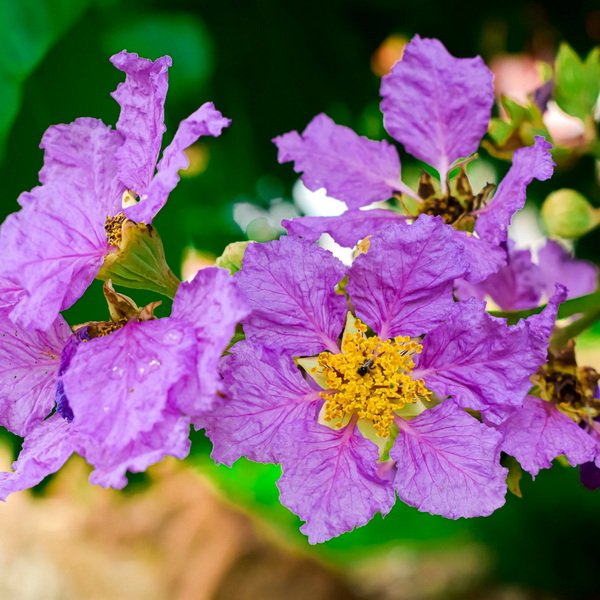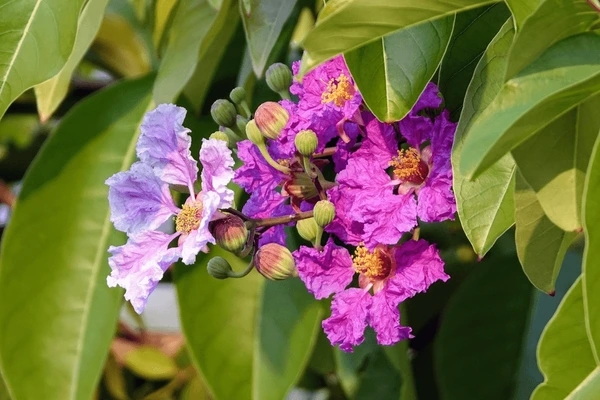Content Menu
● What Is China Banaba Leaf Extract?
>> Key Components
● Traditional and Modern Uses
>> Traditional Medicine
>> Modern Applications
● Scientific Evidence: Efficacy of China Banaba Leaf Extract
>> Blood Sugar Regulation
>>> Mechanisms of Action
>>> Clinical and Preclinical Findings
>> Weight Management
>> Antioxidant and Anti-inflammatory Effects
>>> Potential Benefits
>> Other Potential Benefits
● Safety Profile of China Banaba Leaf Extract
>> Human and Animal Studies
>> Potential Side Effects
>> Precautions
● Manufacturing Standards and Quality Control in China
● How to Use China Banaba Leaf Extract
>> Dosage Recommendations
>> Tips for Safe Use
● Integrating China Banaba Leaf Extract Into Your Wellness Routine
>> Dietary Approaches
>> Complementary Supplements
● Real-World Experiences and Testimonials
● Conclusion
● FAQ
>> 1. What is the main active ingredient in China Banaba Leaf Extract?
>> 2. Can China Banaba Leaf Extract help with weight loss?
>> 3. Is China Banaba Leaf Extract safe for long-term use?
>> 4. Who should avoid China Banaba Leaf Extract?
>> 5. How should I choose a high-quality China Banaba Leaf Extract supplement?
China Banaba Leaf Extract, derived from the leaves of the Banaba tree (Lagerstroemia speciosa), has gained significant attention as a natural supplement for blood sugar regulation, weight management, and metabolic health. With a rich history in traditional medicine and growing scientific interest, China Banaba Leaf Extract is now widely available in capsules, powders, teas, and functional foods. This comprehensive guide explores its origins, key compounds, mechanisms of action, safety, efficacy, manufacturing standards, and practical usage, helping you determine whether China Banaba Leaf Extract is right for your wellness journey.

What Is China Banaba Leaf Extract?
Banaba is a tropical tree native to Southeast Asia, including China, the Philippines, and India. The leaves of this tree have been used for centuries in traditional medicine, especially for managing diabetes and supporting weight loss. China Banaba Leaf Extract is a concentrated form of these leaves, typically standardized to contain corosolic acid—the compound most closely linked to its health benefits.
Key Components
- Corosolic Acid: The primary active ingredient, known for its insulin-like effects.
- Ellagitannins: Polyphenols with antioxidant and anti-inflammatory properties.
- Other Phytochemicals: Including oleanolic acid, valoneic acid, and various flavonoids, all of which may contribute synergistically to the extract's health effects.
Traditional and Modern Uses
Traditional Medicine
In Chinese and Southeast Asian folk medicine, Banaba leaves have been brewed into teas and decoctions to treat diabetes, urinary tract infections, and digestive complaints. The leaves were also used to support kidney and liver health, and as a general tonic for wellness.
Modern Applications
Today, China Banaba Leaf Extract is found in:
- Dietary supplements (capsules, tablets, powders)
- Herbal teas and beverages
- Functional foods and nutraceutical blends
Its popularity has grown due to its potential to:
- Support healthy blood sugar levels
- Aid weight loss and appetite control
- Provide antioxidant and anti-inflammatory benefits
- Promote cardiovascular and metabolic health
Scientific Evidence: Efficacy of China Banaba Leaf Extract
Blood Sugar Regulation
One of the most studied benefits of China Banaba Leaf Extract is its ability to support healthy blood glucose levels. Corosolic acid, the main active component, is believed to enhance glucose uptake into cells, mimicking the action of insulin. This can help lower fasting and postprandial blood sugar, making the extract particularly appealing to those with type 2 diabetes or prediabetes.
Mechanisms of Action
- Insulin Mimicry: Corosolic acid activates cellular pathways similar to insulin, promoting glucose transport into muscle and fat cells.
- Reduction of Glycation: By improving glucose metabolism, Banaba extract may reduce the formation of advanced glycation end products, which are linked to diabetic complications.
- Improved Insulin Sensitivity: The extract appears to make the body's cells more responsive to insulin, further supporting blood sugar balance.
Clinical and Preclinical Findings
- Human studies have shown that supplementing with China Banaba Leaf Extract can lead to measurable reductions in fasting and post-meal blood glucose.
- Animal studies confirm these effects, showing improved insulin sensitivity, lower triglycerides, and healthier lipid profiles in diabetic models.
Weight Management
China Banaba Leaf Extract is often marketed as a weight loss aid. Its effects on weight are thought to be secondary to its impact on blood sugar and insulin:
- Appetite Suppression: By stabilizing blood sugar, the extract may help reduce cravings for carbohydrates and sweets.
- Fat Metabolism: Improved glucose uptake prevents excess sugar from being stored as fat, and enhanced insulin sensitivity supports fat burning.
- Energy Regulation: Users often report steadier energy levels, which can support physical activity and weight management efforts.
While the weight loss effects are generally modest, they are most pronounced when the extract is used as part of a broader lifestyle approach that includes a balanced diet and regular exercise.
Antioxidant and Anti-inflammatory Effects
Banaba leaves are rich in polyphenols, which have strong antioxidant and anti-inflammatory properties. These compounds help neutralize free radicals and reduce oxidative stress, which is linked to chronic diseases such as diabetes, cardiovascular disease, and certain cancers.
Potential Benefits
- Cardiovascular Health: Antioxidants in China Banaba Leaf Extract may help lower cholesterol and triglyceride levels, supporting heart health.
- Organ Protection: Animal studies suggest the extract may protect the liver and kidneys from oxidative damage.
- Immune Support: By reducing inflammation, Banaba extract may bolster immune function and resilience.
Other Potential Benefits
- Anticancer Activity: Preliminary laboratory studies indicate that Banaba extract may induce apoptosis (programmed cell death) in certain cancer cells, though more research is needed to confirm these effects in humans.
- Antimicrobial Properties: The extract has demonstrated activity against some bacteria and viruses in test-tube studies.
- Digestive Health: The presence of dietary fiber and inulin in Banaba leaves may support gut health and regularity.

Safety Profile of China Banaba Leaf Extract
Human and Animal Studies
Research suggests that China Banaba Leaf Extract is generally safe for most people when used as directed. Clinical trials have not reported significant adverse effects, even with prolonged use. Animal studies also show a high safety margin, with no evidence of toxicity or organ damage at typical doses.
Potential Side Effects
Some individuals may experience mild side effects, including:
- Dizziness
- Headache
- Gastrointestinal upset (nausea, diarrhea)
These effects are usually transient and resolve with continued use or dose adjustment.
Precautions
- Blood Sugar Medications: Because China Banaba Leaf Extract can lower blood sugar, it may enhance the effects of antidiabetic drugs, increasing the risk of hypoglycemia. Consult your healthcare provider before combining Banaba with other blood sugar-lowering agents.
- Pregnancy and Breastfeeding: There is insufficient data on safety during pregnancy or lactation. Use is not recommended in these populations.
- Surgery: Discontinue use at least two weeks before scheduled surgery to avoid complications with blood sugar control.
- Allergies: Individuals sensitive to plants in the Lythraceae family (such as pomegranate) should exercise caution.
Manufacturing Standards and Quality Control in China
China is a leading producer of Banaba Leaf Extract, supplying both domestic and international markets. Reputable manufacturers adhere to strict quality control protocols:
- Standardization: Ensuring consistent levels of corosolic acid and other active compounds in each batch.
- Purity Testing: Screening for contaminants, heavy metals, and adulterants.
- Certification: Many suppliers are ISO and FDA certified, with third-party audits to verify quality.
- Customization: Extracts can be tailored for different applications, such as pharmaceutical, nutraceutical, or food-grade products.
When choosing a China Banaba Leaf Extract supplement, look for products that provide transparent information about sourcing, standardization, and third-party testing.
How to Use China Banaba Leaf Extract
Dosage Recommendations
- Typical Dosage: Most supplements provide 8–48 mg of corosolic acid per day, often in capsule or tablet form.
- Tea: 1–2 grams of dried Banaba leaves steeped in hot water, consumed 1–3 times daily.
- Powder: Can be mixed into smoothies, beverages, or food.
Always follow manufacturer instructions and consult a healthcare provider for personalized advice, especially if you have underlying health conditions or are taking medications.
Tips for Safe Use
- Start with the lowest effective dose and monitor your response.
- Track your blood sugar regularly if you have diabetes or are at risk.
- Store supplements in a cool, dry place away from direct sunlight.
- Combine the extract with a balanced diet and regular exercise for optimal results.
Integrating China Banaba Leaf Extract Into Your Wellness Routine
Dietary Approaches
China Banaba Leaf Extract can be incorporated into various dietary regimens, including:
- Low-Carb or Ketogenic Diets: Its blood sugar-lowering effects complement carbohydrate-restricted eating patterns.
- Plant-Based Diets: As a botanical supplement, it fits seamlessly into vegetarian and vegan lifestyles.
- Traditional Herbal Protocols: Banaba can be combined with other traditional Chinese herbs for synergistic metabolic support.
Complementary Supplements
Some users pair China Banaba Leaf Extract with other blood sugar-supporting botanicals, such as bitter melon, cinnamon, or berberine. Always consult a healthcare professional before combining supplements to avoid potential interactions.
Real-World Experiences and Testimonials
Many individuals report positive outcomes with China Banaba Leaf Extract, particularly for managing blood sugar and supporting weight loss. Users often describe:
- Improved energy and reduced fatigue
- Fewer sugar cravings and better appetite control
- Steadier blood glucose readings
While anecdotal evidence is encouraging, individual results vary, and supplements should be viewed as part of a comprehensive approach to health that includes diet, exercise, and medical supervision.
Conclusion
China Banaba Leaf Extract stands out as a promising natural supplement for blood sugar regulation, weight management, and overall metabolic health. Supported by both traditional use and modern scientific research, its primary active compound, corosolic acid, offers insulin-like effects without significant adverse reactions in most users. While generally safe, it is essential to use China Banaba Leaf Extract responsibly, especially if you are taking other medications or have underlying health conditions. Always choose high-quality, standardized products from reputable Chinese manufacturers to ensure safety and efficacy. Remember, supplements work best as part of a holistic approach to wellness that includes a balanced diet, regular exercise, and appropriate medical care.

FAQ
1. What is the main active ingredient in China Banaba Leaf Extract?
The primary active compound is corosolic acid, which mimics insulin's action by enhancing glucose uptake into cells, helping to lower blood sugar levels.
2. Can China Banaba Leaf Extract help with weight loss?
Yes, research suggests that China Banaba Leaf Extract can support weight loss by improving insulin sensitivity, reducing appetite, and promoting fat metabolism. However, results may vary and should be combined with a healthy lifestyle.
3. Is China Banaba Leaf Extract safe for long-term use?
Short-term use appears safe for most individuals, but there is limited data on long-term safety. No serious side effects have been reported in studies up to one year. Consult your healthcare provider for guidance on extended use.
4. Who should avoid China Banaba Leaf Extract?
Pregnant or breastfeeding women, individuals with allergies to the Lythraceae family, and those undergoing surgery or taking blood sugar-lowering medications should avoid or use China Banaba Leaf Extract only under medical supervision.
5. How should I choose a high-quality China Banaba Leaf Extract supplement?
Look for products that are standardized for corosolic acid content, manufactured by reputable companies with certifications (such as ISO or FDA), and tested for purity and safety.






























